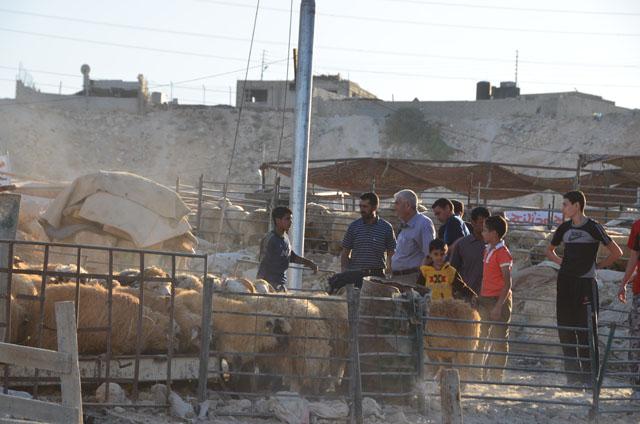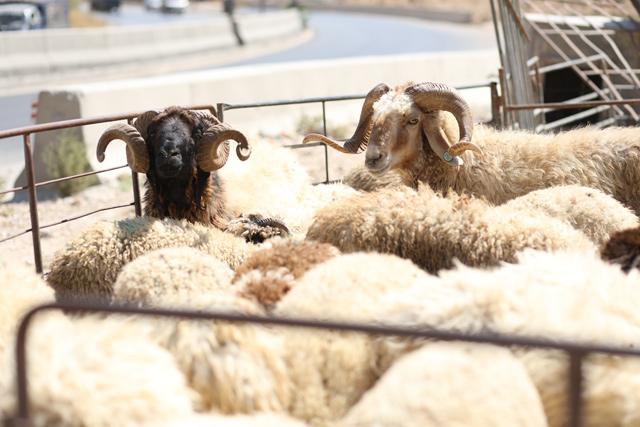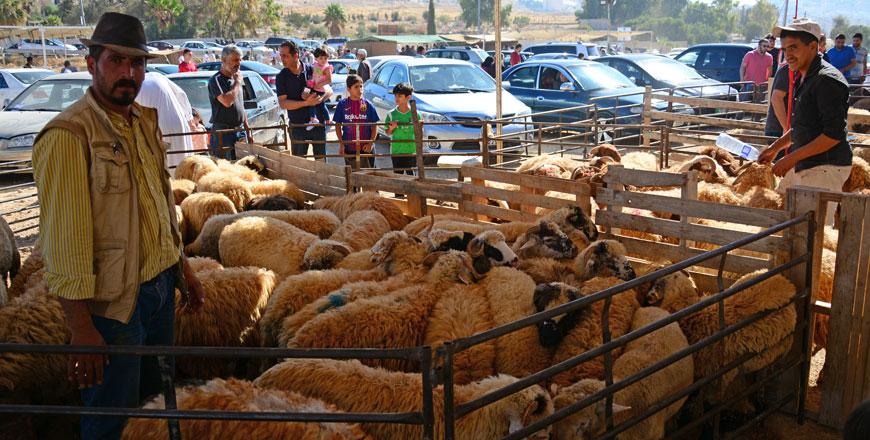You are here
Amman municipality closes 12 illegal stockyards
By Muath Freij - Sep 29,2014 - Last updated at Sep 29,2014
AMMAN — The Greater Amman Municipality (GAM) on Monday closed down 12 illegal stockyards in the capital.
The municipality launched a campaign on Friday, in cooperation with the Public Security Department and Gendarmerie Forces, to search for illegal stockyard owners, according to Ahmad Ebbini, director of the GAM department to monitor street vendors.
“We inform those who open stockyards in areas other than the designated locations in Amman,” Ebbini told The Jordan Times over the phone on Monday.
Last week, GAM designated a number of locations for sheep traders to sell and slaughter their livestock during Eid Al Adha, or the feast of the sacrifice, which marks the end of the Muslim pilgrimage season.
The stockyards will be located in the capital’s Shafa Badran, Sweileh, Wadi Seer, Qweismeh, Jabal Nasser, Marka, Basman, Bader, Hai Nazzal, Ras Al Ain, Muqabalein, Marj Al Hamam, and Khreibet Al Souk areas, according to a GAM statement.
Ebbini noted that illegal stockyards have a negative impact on traffic flow and endanger public safety.
“It is not fair for residents to put up with the smell of sheep during the whole Eid holiday,” the municipality official noted.
A GAM situation room receives complaints about stockyards on 4604998, the Jordan News Agency, Petra, reported. Residents can also call GAM on 4636111 at extension 2266.
Ebbini said the designated sites, far from residential areas, will include underground tanks to collect the blood and veterinarians will be present to examine the sheep.
Traders are required to give customers another sheep for free if the veterinarian finds that the meat of the sold sheep is unfit for human consumption, according to GAM regulations.
Ebbini warned that GAM will be conducting field visits around the capital to ensure that there are no illegal stockyards.
The Eid Al Adha holiday starts on October 3 this year and continues through October 7.
The feast marks the end of the pilgrimage season, when Muslims of sufficient means are required to sacrifice livestock in remembrance of Prophet Ibrahim’s willingness to sacrifice his son Ismail to God.
Related Articles
The Greater Amman Municipality (GAM) on Monday designated a number locations for sheep traders to sell and slaughter their livestock during Eid Al Adha.
AMMAN — Joint inspection teams from the Greater Amman Municipality (GAM) and the Rangers are scheduled to patrol the capital’s neighbourhood
AMMAN — Some 73,119 sheep were sacrificed during the Eid Al Adha holiday, an official at the Greater Amman Municipality (GAM) said.According

















